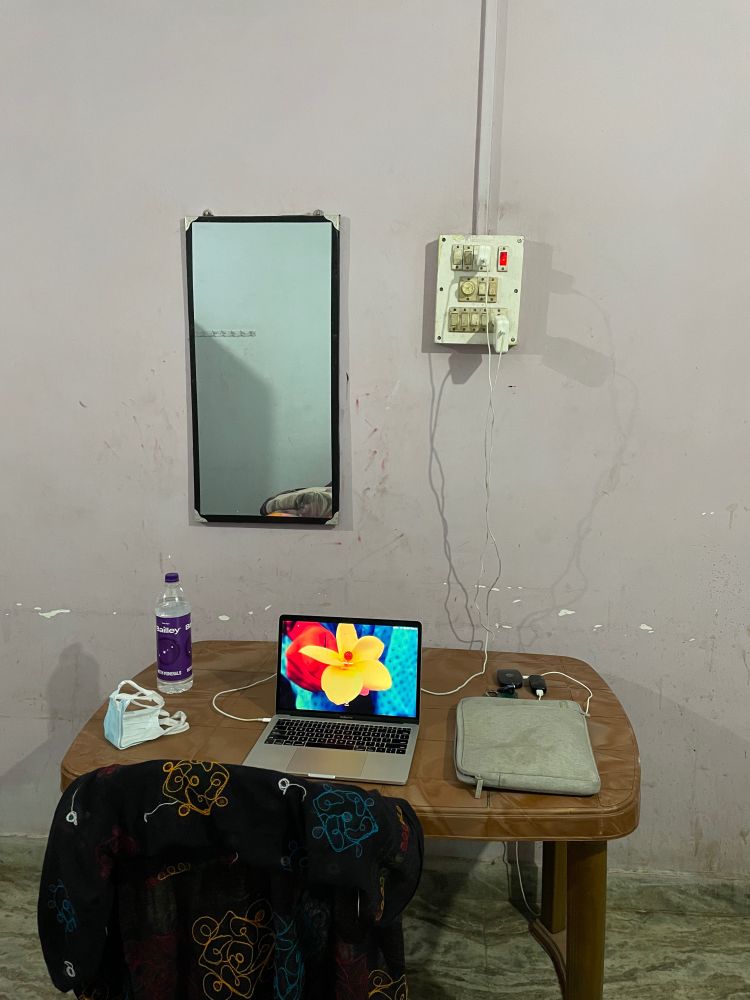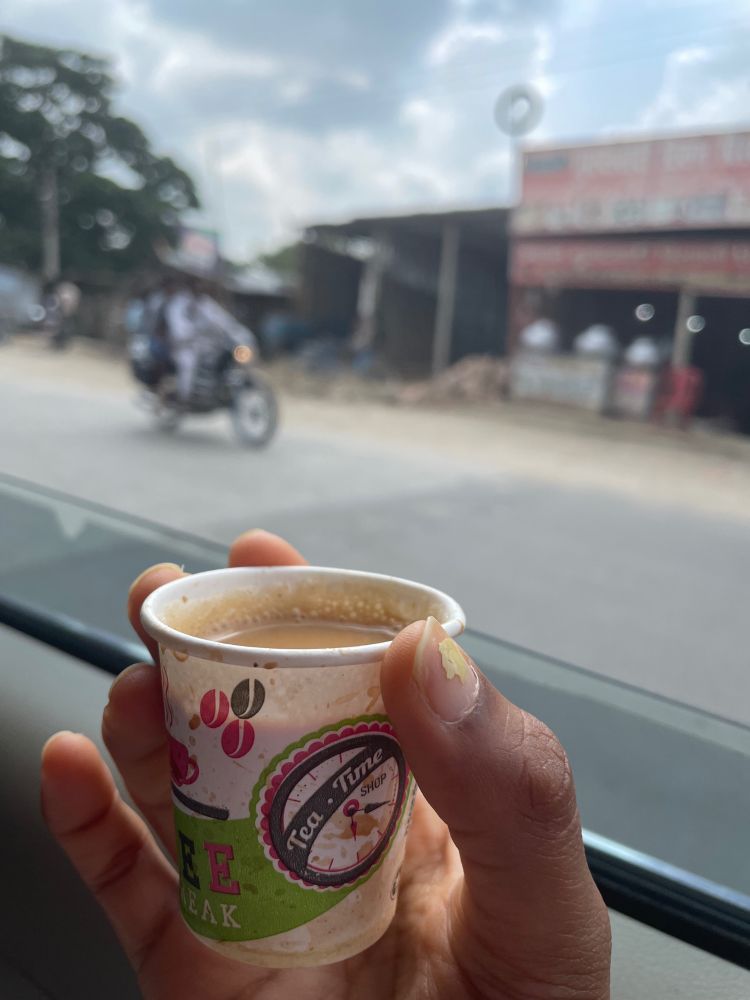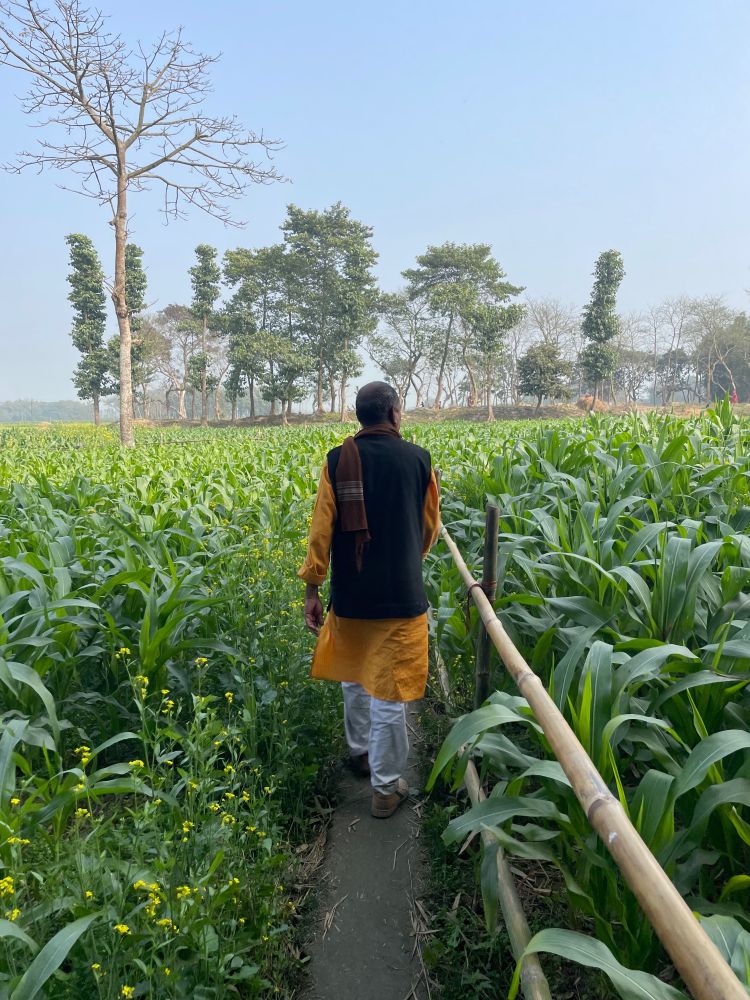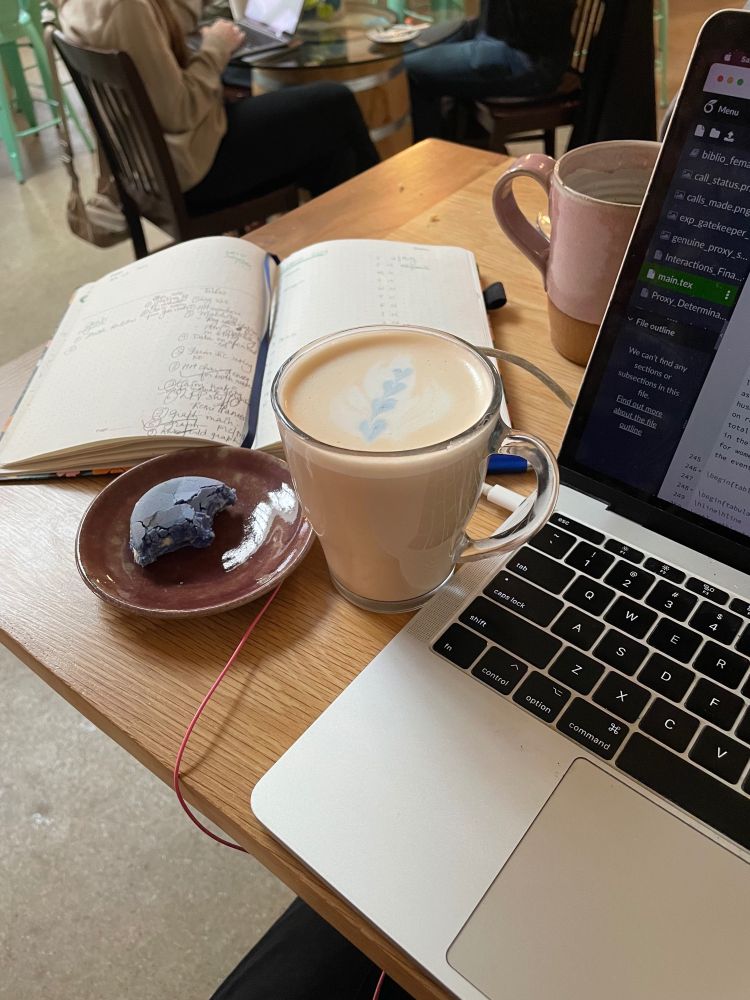Thank you to everyone who joined online and in person for this edition of Texas Comparative circle. Hope to see you next year!
27.01.2026 12:49 — 👍 1 🔁 0 💬 0 📌 0
Wrote a short article for @voxdev.bsky.social using results from my primary data collection. This article is based on a forthcoming @thejop.bsky.social piece where I argue that male migration is an under-examined pathway for female political engagement. papers.ssrn.com/sol3/papers....
27.10.2025 14:47 — 👍 5 🔁 5 💬 0 📌 0
Thank you for sharing this!
25.05.2025 18:04 — 👍 0 🔁 0 💬 0 📌 0
Excited to share that this paper is now forthcoming at the Journal of Politics. It has been a looooooong journey (5 years in the making)! Too many people to thank but most importantly my advisors, three anonymous reviewers and the people of Bihar - forever indebted to their generosity. #gendersky
21.04.2025 17:33 — 👍 14 🔁 4 💬 0 📌 0
Rather than undermining the effectiveness of quotas, we argue there exists significant variation in the ability of women to be de facto leaders that needs further examination.
04.04.2025 20:42 — 👍 2 🔁 0 💬 0 📌 0
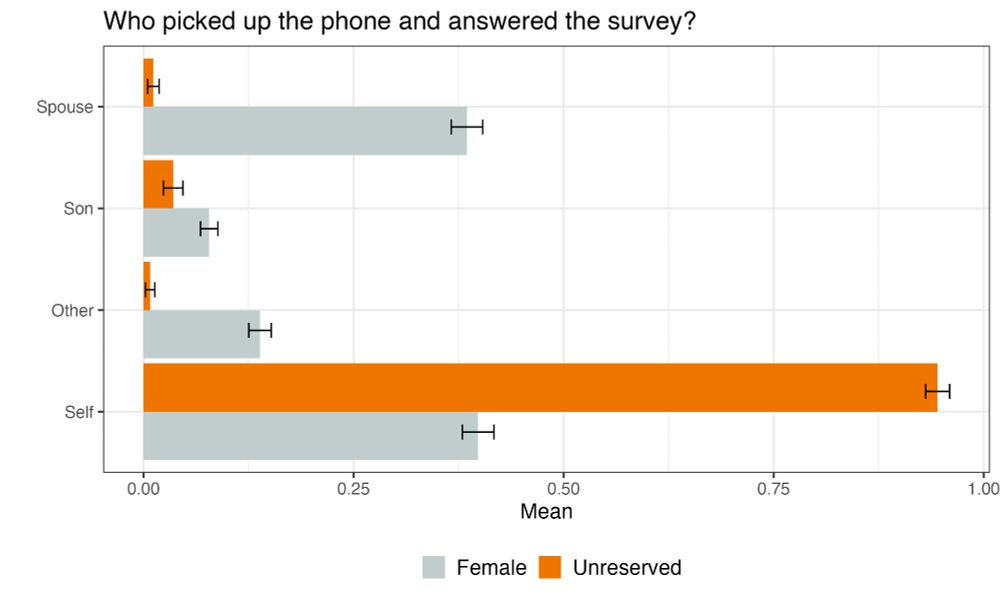
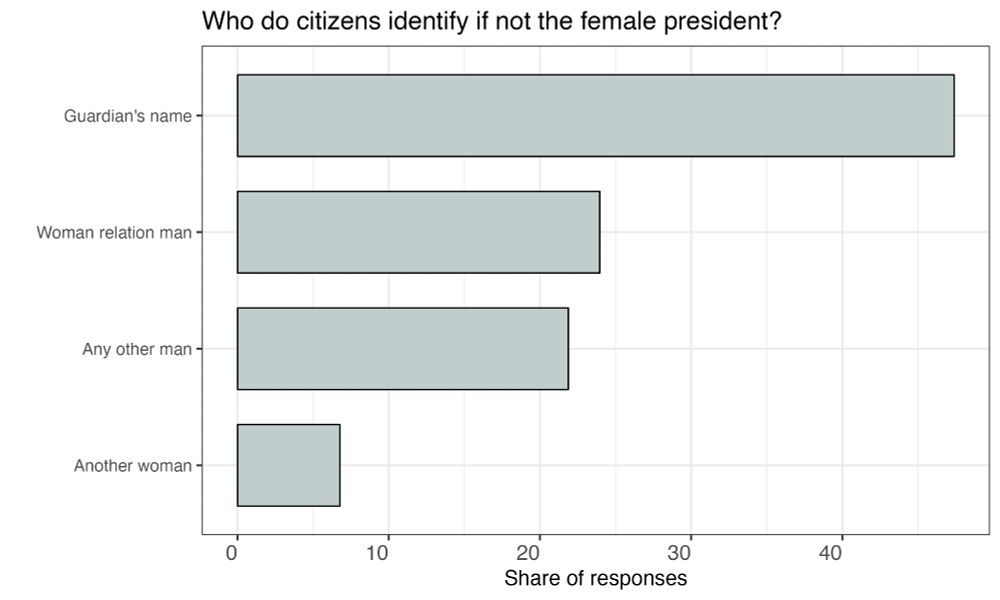
The validation exercise provides evidence in favor of our measure as a robust predictor of proxy status. However, the disproportionate role played by male family members in female reserved village councils (vis a vis unreserved councils) is striking.
04.04.2025 20:42 — 👍 2 🔁 0 💬 1 📌 0
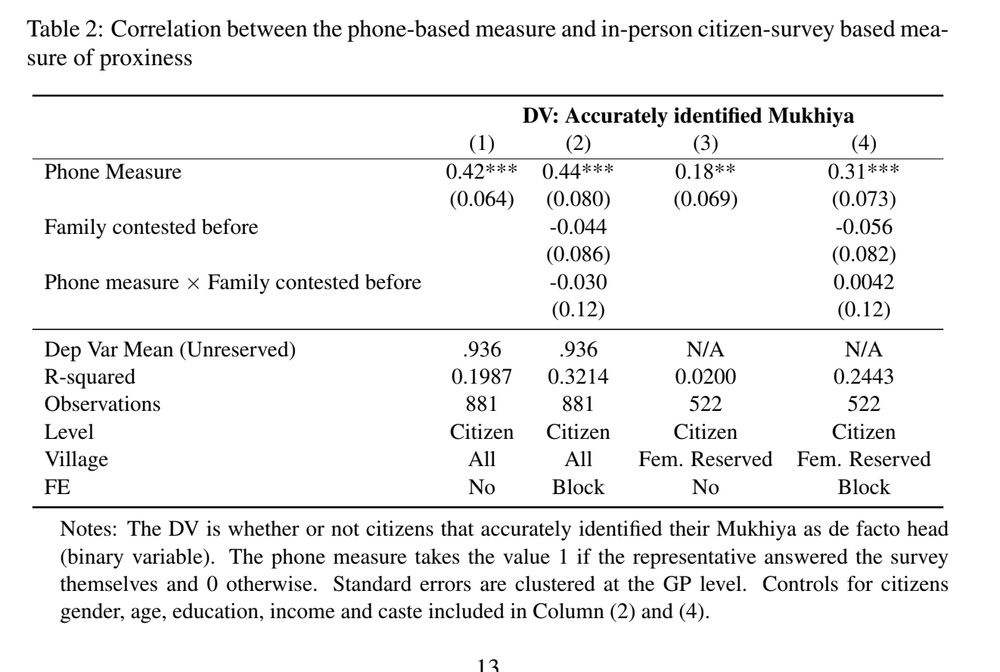
Using a phone measure can possibly overestimate proxy status. So, in a subset of villages we correlate the phone and citizen measures. We find that citizens were significantly more likely to correctly name their female mukhiya if she also responded to our phone survey herself.
04.04.2025 20:42 — 👍 1 🔁 0 💬 1 📌 0
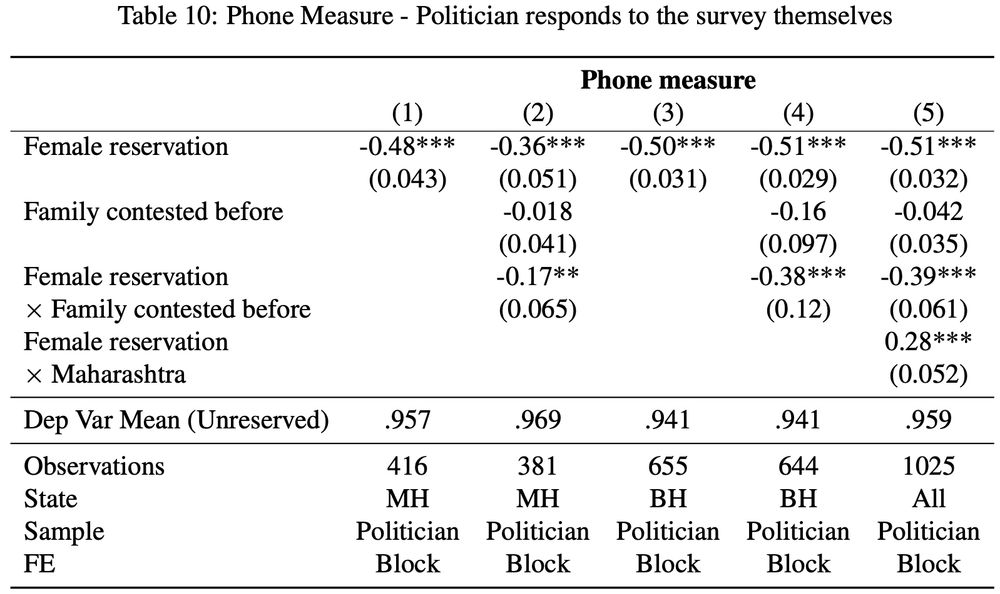
We also find interesting heterogenous effects by state. As expected, female politicians are significantly less likely to be proxies in Maharastra than Bihar. Remember, not only is MH more developed, it also implanted quotas about 9 years before Bihar.
04.04.2025 20:42 — 👍 1 🔁 0 💬 1 📌 0
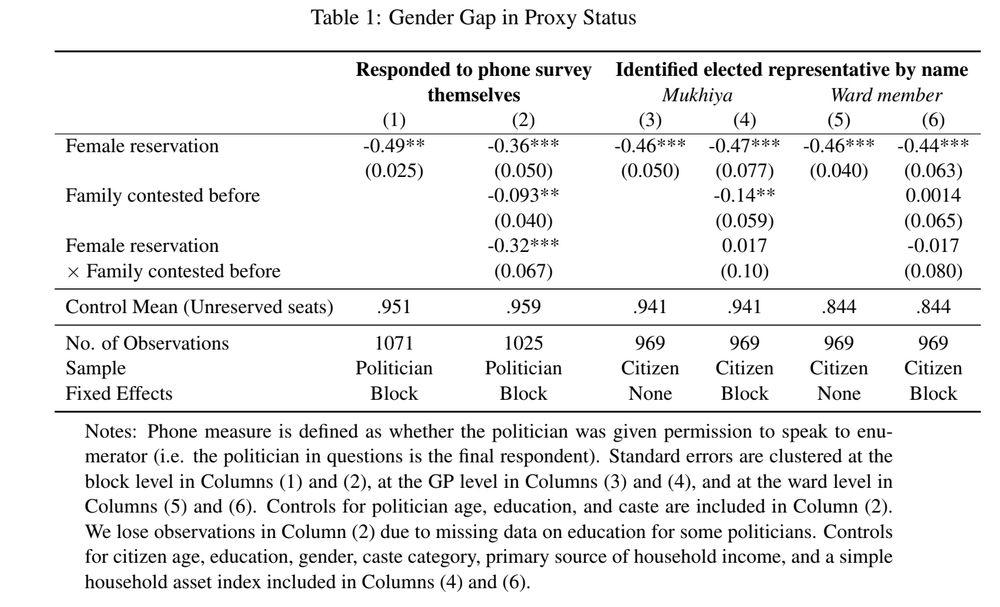
Positive takeaway: There is significant variation in proxy status i.e.not all women are proxies! The ability of women to be de facto leaders varies significantly. However, 30 years since quotas were implemented, there is a consistent gender gap in proxy status across our measures
04.04.2025 20:42 — 👍 1 🔁 0 💬 1 📌 0
Drawing on our fieldwork, we called ~1000 politicians in Bihar and Maharashtra to respond to our governance related phone survey and identified who *actually* responds to it. We supplement this with an in-person citizen survey where respondents had to name their village leaders.
04.04.2025 20:42 — 👍 1 🔁 0 💬 1 📌 0

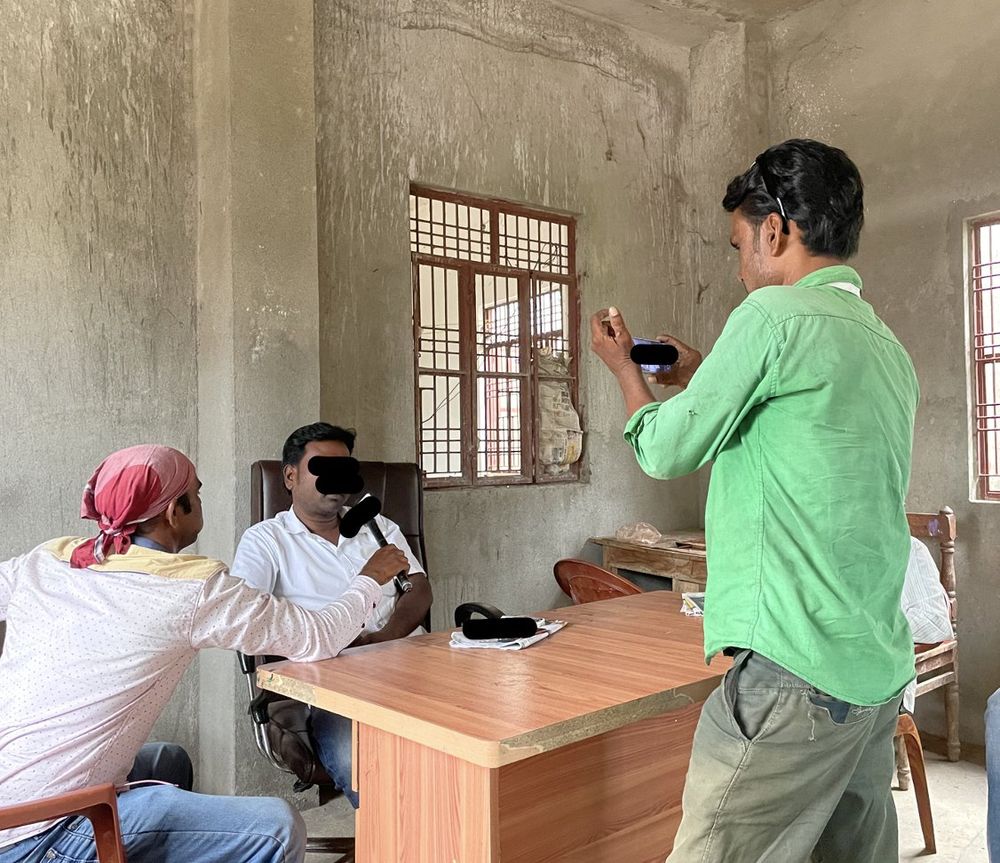
During our fieldwork we saw husbands sitting in the female mukhiya's chair and even campaign posters for women with their husband photos (see below). Beyond these anecdotes, how widespread are proxy leaders? We develop & validate a measure of proxy leadership to address this
04.04.2025 20:42 — 👍 1 🔁 0 💬 1 📌 0
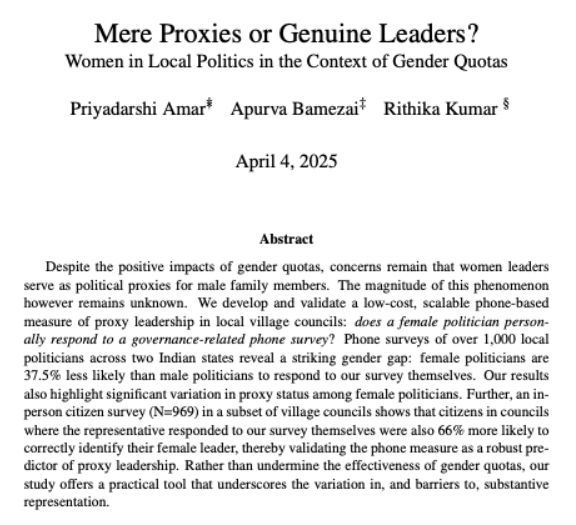
📣📣Excited to share a new working paper with @priyadarshi-amar.bsky.social and Apurva Bamezai. We develop and validate a phone-based measure to assess the magnitude of 'proxy' female politicians in gender-reserved villages in India. Full paper: papers.ssrn.com/sol3/papers....
04.04.2025 20:42 — 👍 8 🔁 2 💬 1 📌 0
We are excited to host @dramyhliu.bsky.social for our Hudspeth Lecture Series! She will be speaking on the "The Missing Asians of Asian Americans" on Friday, January 31 at 12 pm in Duncan Hall 1064.
27.01.2025 12:50 — 👍 6 🔁 2 💬 0 📌 0
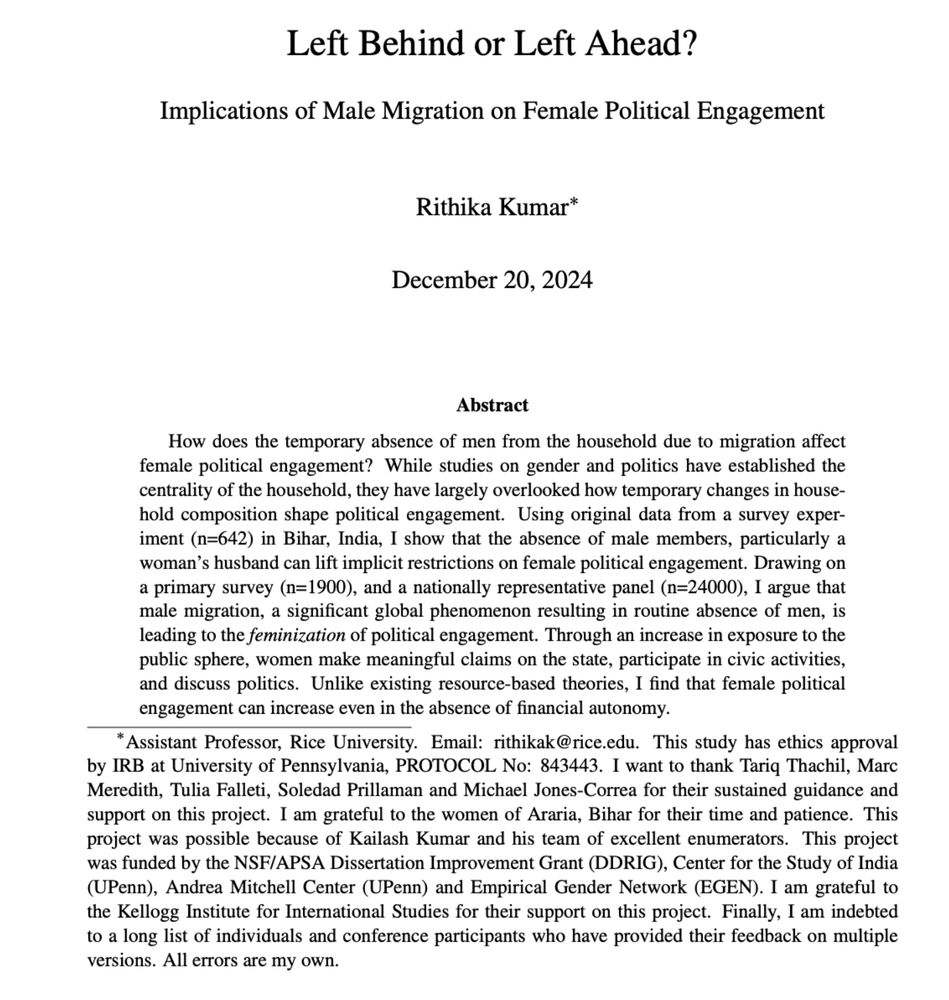
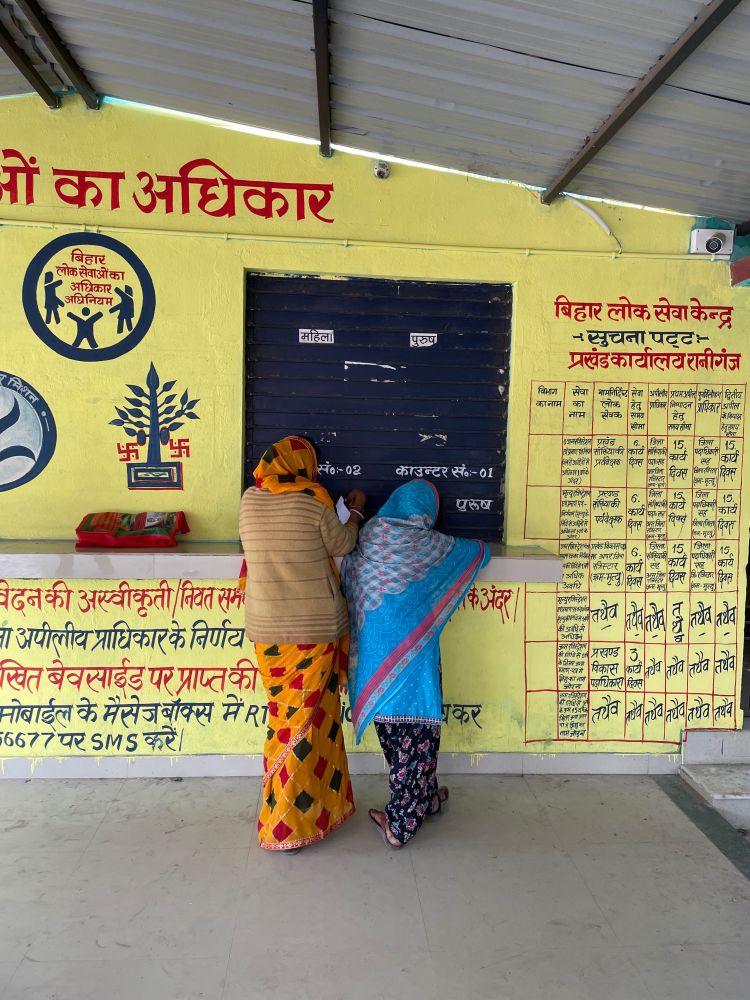
I’m new here & thought I'd share a snippet of my work! In this working paper I use a face-to-face survey exp, an original survey and a panel to show that the male migration disrupts the household status quo by creating the routine absence of men leading to the feminization of political engagement.
20.12.2024 16:31 — 👍 11 🔁 2 💬 1 📌 1
Assistant Professor @ricepolisci.bsky.social
Website: https://jaeheejung.com
Recent book: https://bit.ly/3VQHQDs
Forthcoming book: https://bit.ly/4qFnwCh
Econ AP @Unibocconi. Postdoc @UCSD, PhD @UCLA. #FirstGen middle school grad. Behavioral economics, Development Economics and Political Economy.
Lecturer at GSU (she/her/hers)
#FirstGen studying political parties in autocracies, opposition coordination, and post-rebel political parties
PhD Fellow at Copenhagen University. Focusing on women's descriptive representation. Part of the larger ODER project - Origins of Descriptive Representation. Visiting University of California Berkeley in the fall of 2025.
Postdoctoral fellow @ Princeton. Studies political economy and identity in South Asia.
Read, teach and write about comparative politics, political economy, and social science at UC-Merced: https://aditya-dasgupta.com
Professor of political science, University of Oslo. Indian politics, comparative politics, political economy, gender and politics, research methods & more
www.francesca.no
Politcal Science PhD candidate @ Yale: Language, Responsiveness, Ideology
Pittsburgh-based historian of social movements, radicalism and extremism, the working class, and immigration and ethnicity. Father. Autism advocate. Navy veteran. Duke, Steelers, Penguins, Pirates, Riverhounds, USM&WNT, Liverpool, St. Pauli.
Polisci prof at U of Denver. She/her. American politics and law, American political development, gender & politics, state politics. Opinions represent myself only.
Check out my work: https://du.digication.com/sara-chatfield/home
Assistant Prof of Political Science | Gender, Conflict, Security | My views are my own and do not reflect those of my institution.
Assistant Professor of Int'l Relations at Carnegie Mellon University | PhD at UPenn | Former Fellow at Harvard & MIT | I study things that go boom
joshuaaschwartz.com
Associate Professor at UCL | Brazilian politics, gender and politics, representation, & behaviour | Feminista e baiana
Ass't Prof @ Middlebury Institute of International Studies in Monterey. Cyber, ransomware, dark web, int. relations.
PhD-ing in Peace & Political Science at University of Notre Dame. Climate and gender politics. Previously: a decade in aid sector in Palestine, Libya, Afghanistan, Nepal and elsewhere. Unrewarding sense of loyalty to: Man United, UK Labour Party.
He/him
Assistant Professor of Comparative Politics, Leiden University.
Mumbai bureau chief at the Financial Times.
Previously with Bloomberg in India, Pakistan, Nigeria and the UK.
https://chriskay.co.uk/
https://www.ft.com/chris-kay
Professor of Gender and Politics at Royal Holloway University of London; co-editor of @ejpgjournal.bsky.social; failed ballerina and would-be puppy owner.
Assistant Professor @ IU Political Science | PhD @ Michigan State | gender, conflict, and peace | JMU alumna








